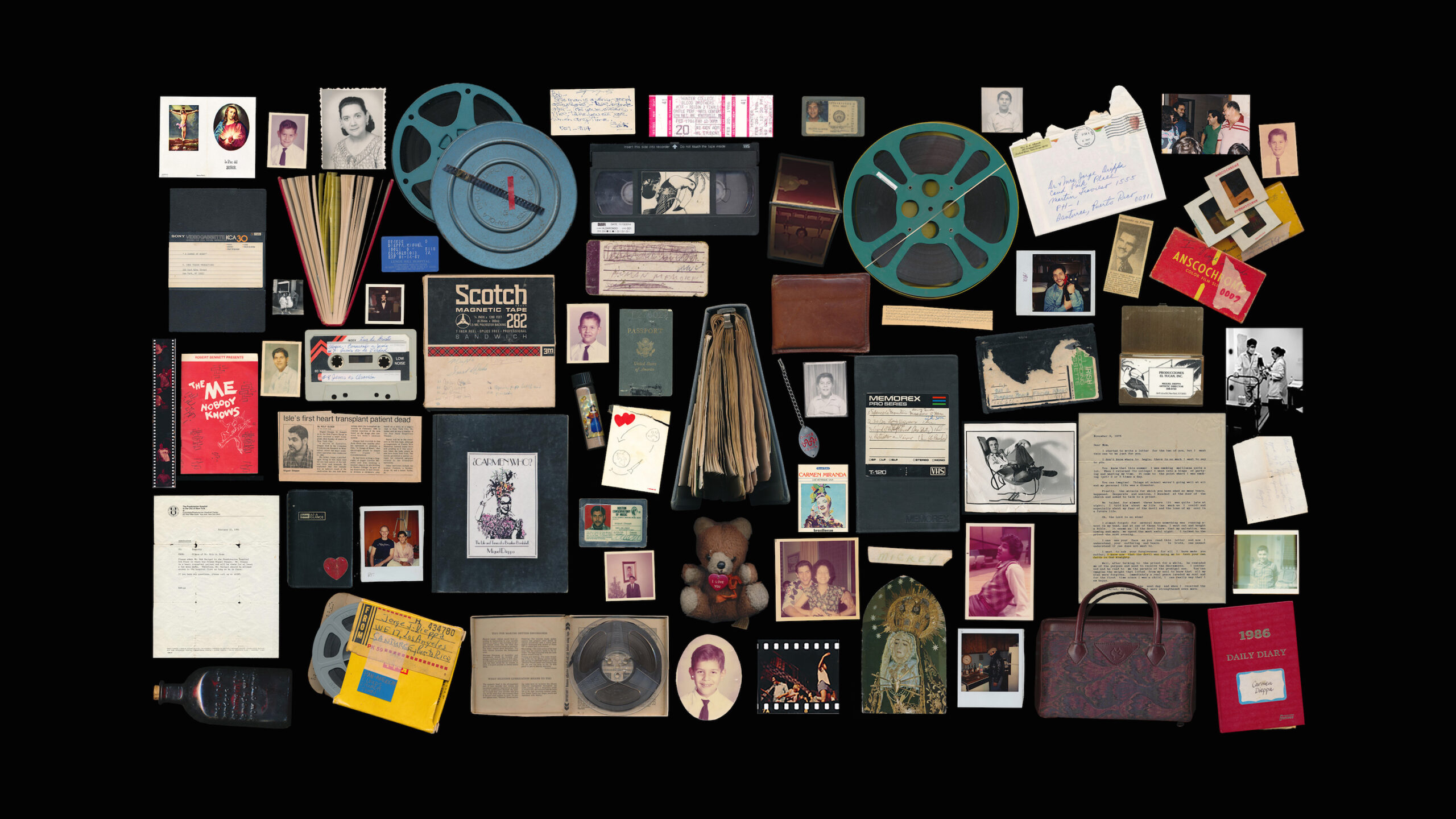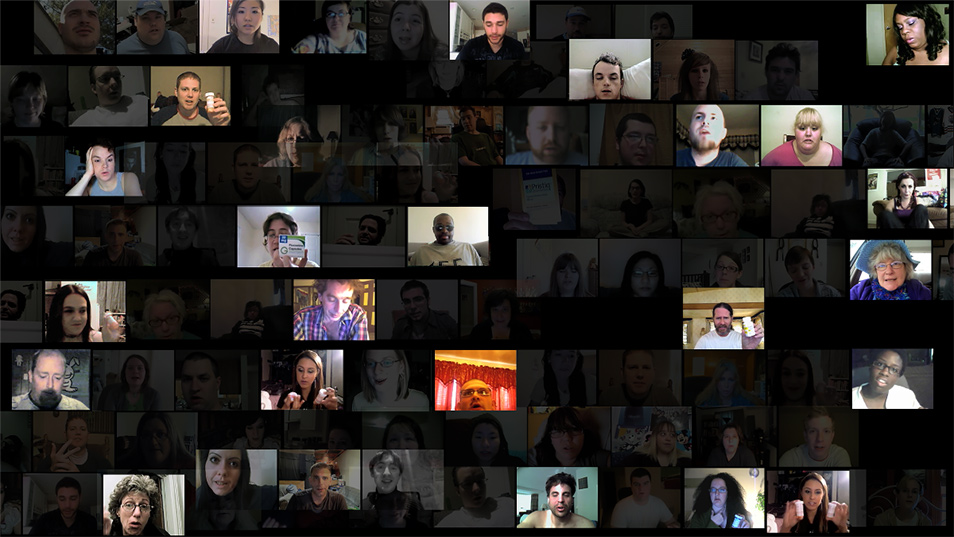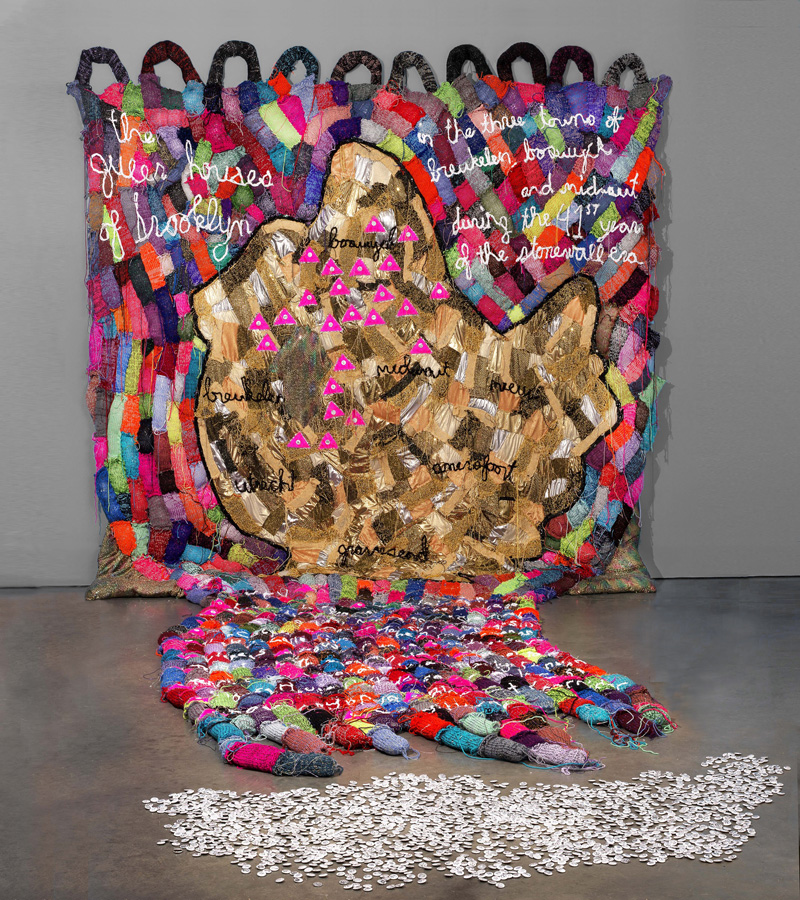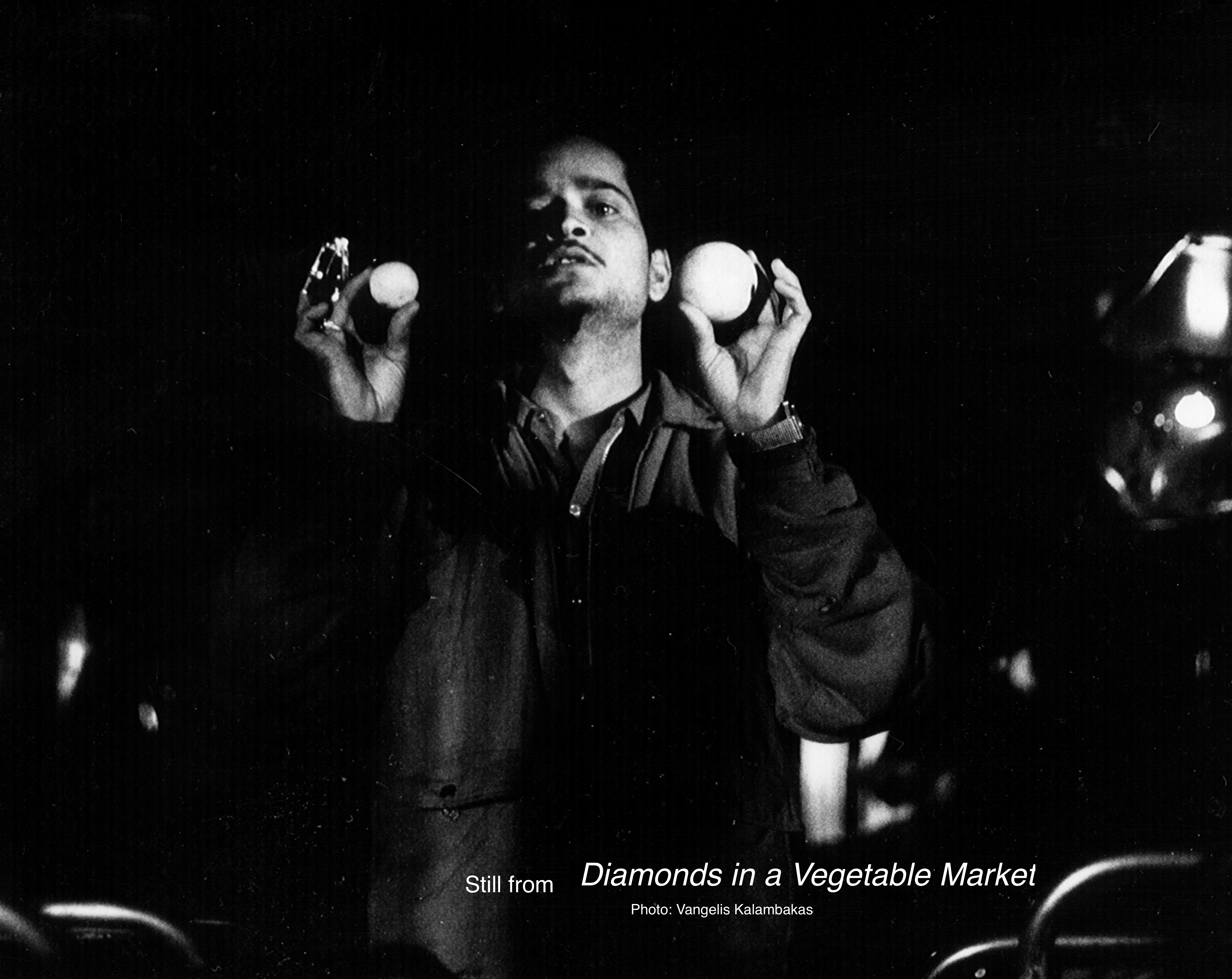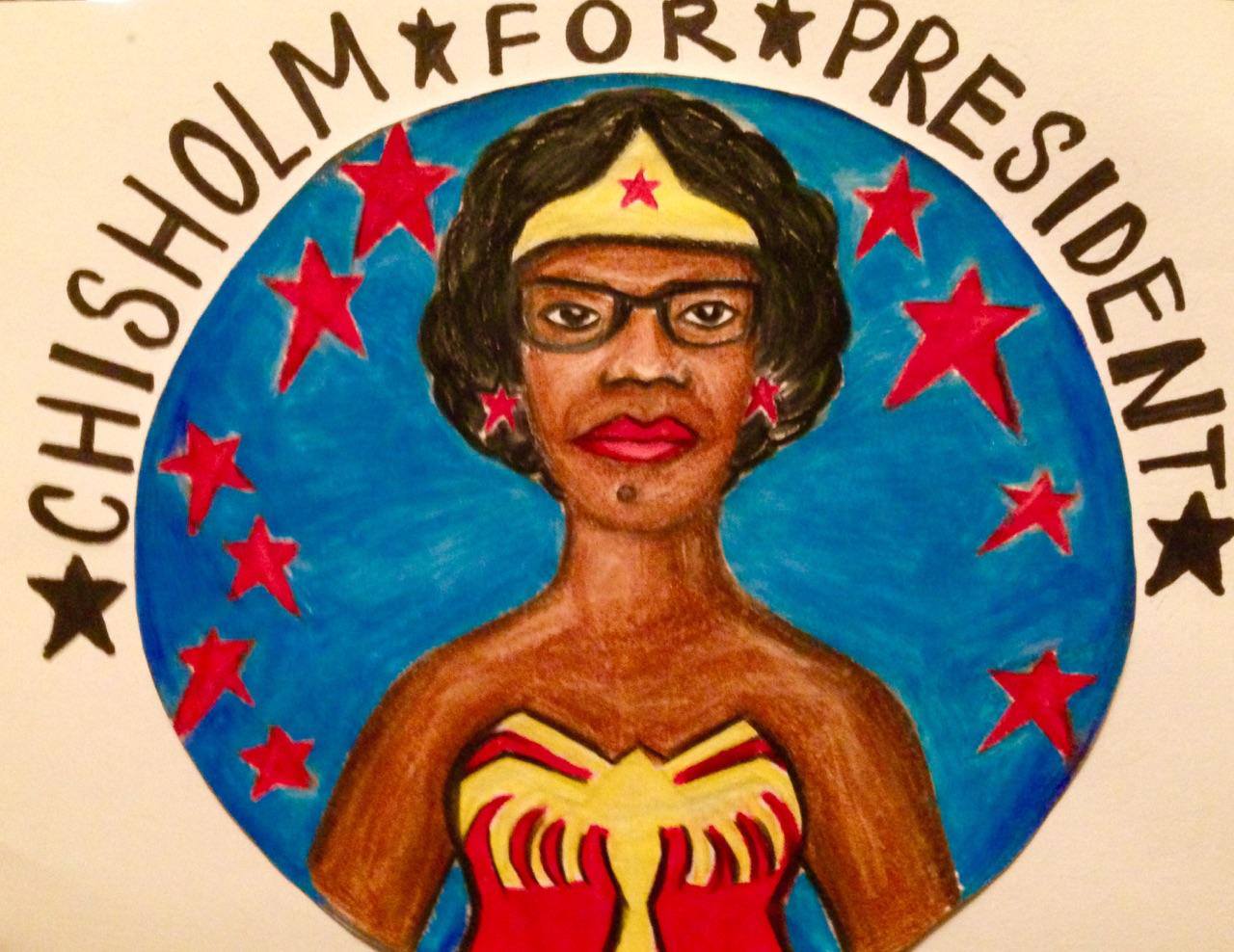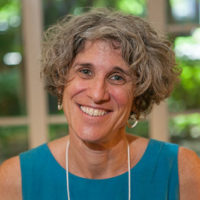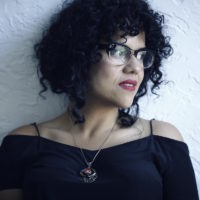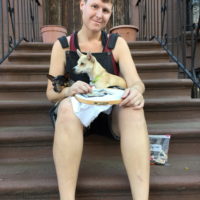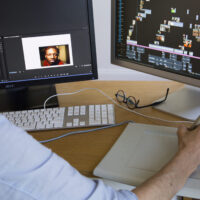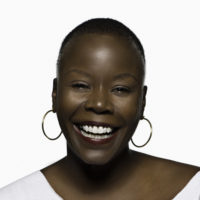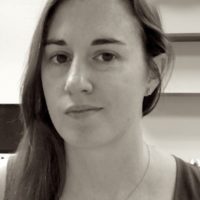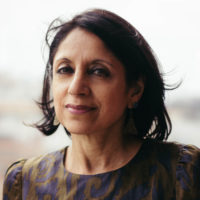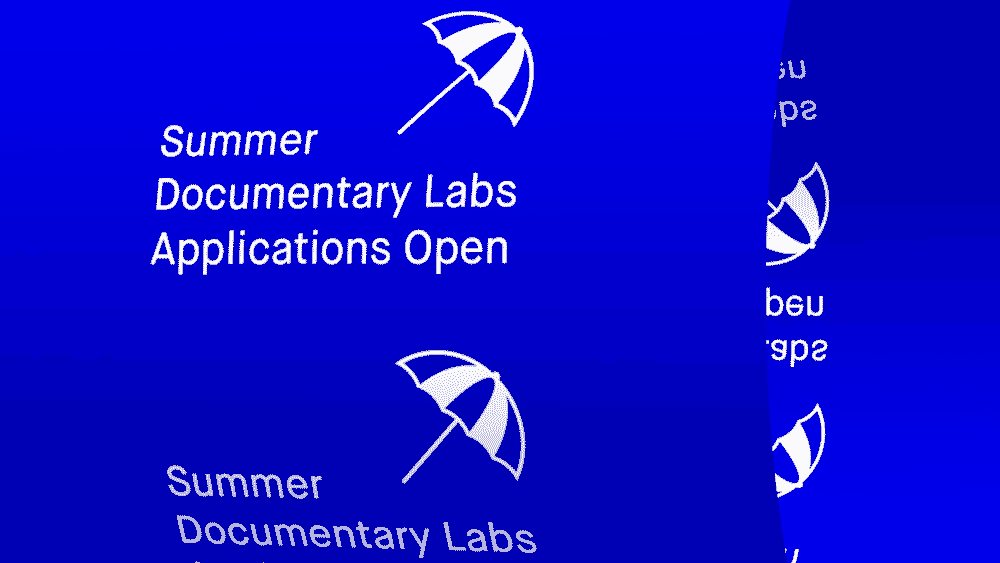Mar 10, 2017 at 10:00 am – Mar 12, 2017 at 5:00 pm
Watching/Making Race
With lead instructor Alexandra Juhasz, and Cecilia Aldarondo, LJ Roberts, Natalie Bookchin, Shelly Eversley and Nilita Vachani
This three-day intensive will produce and activate a set of documents made by our instructors and participants, found online, or workshop-made—documentaries, texts, images, and material objects—that will build a collaborative project of place-based feminist media literacy about race and racism in Trump’s America. The workshop will conclude with a show at Unions Docs of our anti-racist, feminist documents.
In a recent op ed about fake news, Juhasz has written: “a self-aware attention to the current conditions of the internet must become our most important self-evident truth moving forward. A very serious project of digital media literacy is critical for our democracy, and is a crucial place where scholars, artists and our students, regardless of our fields, can make pivotal contributions. As citizens, we need to understand how the internet works—technologically, financially, legally, socially. Educators and artists need to teach and learn how to better read digital media, to understand who makes it, owns it, and circulates it. We need to ask how and why it is structured and visualized as it is, and what truths and mistruths it states. We need to learn how and where to demand real and better news. We need to produce context for the rudderless fragments of information that circulate online, as well as the forums where we can share our findings, activities, and practices.”
The workshop will collaboratively produce one such context and forum for a feminist digital media literacy about race: a culminating event, and a set of linked documents, to be held and shared at UnionDocs.
Details
Open to everyone. We are looking for multimedia artists, filmmakers, hackers, educators, curators and tinkerers of all kinds interested in feminist art-making and activism. Those with a desire to work with an amazing group of feminist makers to collaboratively produce creative responses to contemporary issues of race, gender and injustice strongly encourage to apply!
Give us an idea of who you are and why you are coming. When you register you will be asked for a short statement of interest that should briefly describe your experience and a film project (it would be great if you have a project in progress that you would present to the group during the work-in-progress critique sessions), plus a bio. There’s a spot for a link to a work sample (and CV, which would also be nice, but is not required).
$295 early bird registration by March 3rd at 5PM.
$385 regular registration.
Includes Friday and Sunday night public events.
The deposit is non-refundable. Should you need to cancel, you’ll receive half of your registration fee back until February 24th. After February 24th, the fee is non-refundable.
In order to keep costs down, this workshop is a BYOL, i.e. bring your own laptop. Students must be fully proficient using and operating their computers.
To register for a workshop, students must pay in full via PayPal. Course fees are not refundable or transferable, and any withdrawals will result in the full cost of the class being forfeit. There will be no exceptions. To withdraw from a course please email info-at-uniondocs.org.
In the event that a workshop does not receive sufficient enrollment, it may be canceled. Students will be notified at least 48 hours prior to the start of a cancelled workshop and will be refunded within 5 business days. If we reschedule a workshop to another date, students are also entitled to a full refund. UnionDocs reserves the right to change instructors without prior notification, and to change class location and meeting times by up to an hour with 48 hours prior notice.
Please note: Participants are accepted on a first-come, first-serve basis.
Schedule
Friday, March 10: 10am-5pm -- Activating Memory and Objects
AM: Cecilia Aldarondo
Cecilia Aldarondo will explore intimacy as a political-aesthetic strategy for our current era of alienation and factionalism.
PM: “Seeing/Making (our) Selves: Portraiture, Race, Representation and Abstraction” with LJ Roberts
Producing narratives constructs the frameworks and in which we function and the beliefs we often accept. This workshop asks participants to ask what narratives are put forth in popular media, what is absent from them, and what stories are missing altogether. Additionally, it asks what tactics and strategies can be used to bring forward individuals, groups, and histories that often remain in the shadows to give them agency beyond the structure of traditional linear narratives. This is a “hands-on/analog” session in which students will consider presence and absence in current print media. Students will collage newspapers, magazines, and periodicals to create visuals that tell stories or provide commentary that is not presented at the forefront or outset. The workshop will also consider the making of the self, representation, and agency using tactics of both the representation of bodies as well as abstraction. How might assemblage guide us towards building narratives challenge us to read in between the lines?
**Special public screening of Su Friedrich’s I Cannot Tell You How I Feel (2016) begins at 7:30pm**
Saturday, March 11: 10am-5pm -- Watching/Making Race Online
AM: “Now he’s out in public and everyone can see” with Natalie Bookchin
Natalie Bookchin will screen and discuss her new film. Now he’s out in public and everyone can see (2017, 24min) presents a fractured narrative constructed from numerous video blogs downloaded from YouTube from 2009 to 2011 – the early days of social media – to tell a troubling story about race and class in America in the Obama era. The film is a remake of an 18-channel video installation first shown in 2012. Natalie will talk about different aspects of both the installation and the new film.
PM: “Feminist Ecologies of Anti-Racist Knowledge and Resistance” with Shelly Eversley, founder of EqualityArchive.com, and Laurie Hurson, architect of EqualityArchive.com
This session begins with the assumption that knowledge informs action. This position is particularly relevant in the contemporary political and social context in which “alternative facts,” or fake knowledge, are reorganizing democratic practice. In this session, we will first build an idea map of the interactions between history, people, and ideas that inform anti-racist feminist knowledge. The idea map will make tangible the kinds of intersections and assemblages that are vital to feminist theory and practice—feminist praxis. Then, we will explore how to archive and document those maps within digital feminist knowledge ecologies like EqualityArchive.com. We will build multimodal assets that not only show relations and movements between people, history, and issues, but also how to organize these kinds of reliable knowledge in the service of anti-racist political action.
Sunday, March 12: 10am-5pm -- Feminist Documentary Fictions of Race
AM: “Chronicle of a Post-Election: Towards a Paradigm of Engagement” with Nilita Vachani
“If you’re tired of arguing with strangers on the Internet, try talking with one of them in real life.”
Inspired by Rouch and Morin’s path-breaking cinema verité film Chronicle of A Summer (1961) in tandem with Obama’s farewell speech, Nilita Vachani’s session will explore cinema truth as enabled by the camera to create dialogue between different groups in the hope of building bridges and forging understanding in a polarized world.
PM: “Fake Documentaries and Truth’s Undoing” with Alex Juhasz
Alex Juhasz will historicize fake news within the changing tradition of fake documentary leading to a consideration of its valence for contemporary feminist documentary: from its radical, affirming uses in projects like The Watermelon Woman (dir: Cheryl Dunye, 1995, produced by Juhasz), to its increasing loss of productivity on YouTube, culminating in the use of the form supporting the election of Trump and thereby reifying racism. Participants will work through their own commitments to sincerity, material and embodied reality and place, with close attention to their racial and ethnic representation.
**Special Sunday night public event begins at 7:30pm**
Culminating event of collaborative responses and short films by guest artists … details coming soon!
Each day follows this general structure, with some minor variations and substitutions:
Warm up, inspiring references
Presentation by guest speaker + individual work-in-progress critique
Share / Discussion / Exercise
Presentation by guest speaker + individual work-in-progress critique
Workshop Exercise + Critique
Dr. Alexandra Juhasz is the chair of the Film Department at Brooklyn College, CUNY. She makes and studies committed media practices that contribute to political change and individual and community growth. She is the author of AIDS TV: Identity, Community and Alternative Video (Duke University Press, 1995); Women of Vision: Histories in Feminist Film and Video (University of Minnesota Press, 2001); F is for Phony: Fake Documentary and Truth’s Undoing, co-edited with Jesse Lerner (Minnesota, 2005); Learning from YouTube (MIT Press, 2011: https://mitpress.mit.edu/books/learning-youtube); co-edited with Alisa Lebow, The Blackwell Companion on Contemporary Documentary (2015) and with Yvonne Welbon, Sisters in the Life: 25 Years of African-American Lesbian Filmmaking (Duke University Press, 2016). Dr. Juhasz is also the producer of educational videotapes on feminist issues from AIDS to teen pregnancy as well as the feature films The Watermelon Woman (Cheryl Dunye, 1997) and The Owls (Dunye, 2010). Her current work is on and about feminist Internet culture including YouTube (aljean.wordpress.com) and feminist pedagogy and community (feministonlinespaces.com and ev-ent-anglement.com). With Anne Balsamo, she was co-facilitator of the network, FemTechNet, which debuted its feminist rethinking of a MOOC, a Distributed Online Open Course “Dialogues in Feminist Technology” in Fall 2013: femtechnet.org.
Cecilia Aldarondo holds an M.A. from Goldsmiths College and Ph.D. from the University of Minnesota, and is Assistant Professor of Film at Skidmore College. Her award-winning personal documentary MEMORIES OF A PENITENT HEART had its World Premiere at the Tribeca Film Festival in 2016 and will broadcast nationally on POV in 2017. A co-production of POV, Latino Public Broadcasting, and ITVS, MEMORIES has received additional support from the MacDowell Colony, the Sundance Institute, Jerome Foundation, Firelight Media, and New York State Council on the Arts, among others. In 2015 Aldarondo was selected for IFP’s Independent Filmmaker Labs and Sundance Institute’s Edit and Story Lab, and was the winner of the 2015 Paley DocPitch. Aldarondo was the inaugural recipient of the Roberto Guerra Documentary Award in 2015, was named by FILMMAKER Magazine as one of 2015’s ‘25 New Faces of Independent Film,’ and is a 2017 Women at Sundance Fellow.
LJ Roberts is a visual artist living in Brooklyn, NY who creates large-scale textile installations, incredibly detailed embroideries, screenprints, and collages. Their work investigates overlaps of queer and trans politics, activism, protest and craft through an intersectional feminist lens. LJ’s work has been shown in the United States, United Kingdom, Canada, South Africa, and Australia at such venues as The Victoria and Albert Museum, The Brooklyn Museum,Yerba Buena Center of the Arts, The Orange County Museum of Art, The Leslie-Lohman Museum of Gay and Lesbian Art, The Powerhouse Museum, DePaul Art Museum, The Bowdoin College Museum of Art, and the Smithsonian Museum of American Art where their work is in the permanent collection. LJ has been the past recipient of a MacDowell Colony Fellowship and residencies at Ox-Bow School of Art, ACRE, and The Bag Factory. LJ was one of nine recipients of the White House Champion of Change Award for LGBTQ Artists in 2015. They teach at Parsons School of Design.
Natalie Bookchin’s artwork explores changing boundaries between public and private, and individual and collective performances of the shared self in an era of ubiquitous connectivity. Multi-channel video installations and films take form as something akin to complex musical orchestras with soloists, duets, and large choruses that perform multiple harmonic and dissonant melodies of the self as it is narrated, performed, and presented in public. These choruses suggest new social arrangements that at times push up against the alienating constraints of contemporary technological forms. Her work is exhibited widely including at MoMA, LACMA, PS1, Mass MOCA, the Walker Art Center, the Pompidou Centre, MOCA Los Angeles, the Whitney Museum, the Tate, and Creative Time. She has received numerous grants and awards, including from Creative Capital, California Arts Council, the Guggenheim Foundation, the Durfee Foundation, the Rockefeller Foundation, California Community Foundation, the Daniel Langlois Foundation, a COLA Artist Fellowship, the Center for Cultural Innovation, and most recently, a MacArthur Foundation Grant, a NYSCA Individual Artist Fellowship and a NYFA Opportunity Grant.
Shelly Eversley teaches literature, feminism, and black studies at Baruch College, The City University of New York, where she is Associate Professor of English. She is Academic Director of The City University of New York’s Faculty Fellowship Publication Program and founder of equalityarchive.com. She is the author of The “Real” Negro: The Question of Authenticity in Twentieth Century African American Literature as well as several essays on literature, race, and culture. She is editor of The Sexual Body and The 1970s, both special issues of WSQ, a journal by the Feminist Press. She is also editor of the forthcoming book Black Art, Politics, and Aesthetics in 1960s African American Literature and Culture (Cambridge), and is writing a new book titled The Practice of Blackness, or Integration’s Discontents in Postwar African American Literature.
Laurie Hurson is a PhD Candidate in the Environmental Psychology program at The Graduate Center, CUNY. Her dissertation explores how undergraduate students utilize resources and technologies to engage in their course work and college learning experiences. She is interested in students’ development of learning ecologies and possibilities for critical pedagogical approaches that support multiple forms of learning. She works at Baruch College’s Center for Teaching and Learning and as an Instructional Technology Fellow at Macaulay Honor’s College.
Nilita Vachani is a documentary filmmaker, writer and educator who divides her time between India and New York. Her documentaries, Eyes of Stone, Diamonds in a Vegetable Market and When Mother Comes Home for Christmas have been screened internationally to great critical acclaim and have received many awards. At present she is working on a documentary hybrid entitled Reborn in Clay on forensic art. Nilita’s films have been featured in the books Global Woman (Ehrenreich & Hochschild, 2003), Left in the Dark (Stuart Klawans, 2002), Moving People Moving Images (Brown, Iordanova & Torchin, 2010) and Fly in the Curry (Monteiro & JayaShankar, 2016). Nilita’s debut novel HomeSpun won Foreword’s choice fiction award in 2008. Her recent non-fiction writing on a domestic worker whose identity was stolen by her employer and used in a massive insider trading scandal was published in the Nation and in Caravan and won her the Asian College of Journalism’s inaugural prize for investigative journalism in 2016. Nilita has also worked as an assistant director and script supervisor and as an editor on documentary films. She has been teaching documentary film at the Tisch School of the Arts since 2008 and has held visiting positions at universities in India and the United States.


